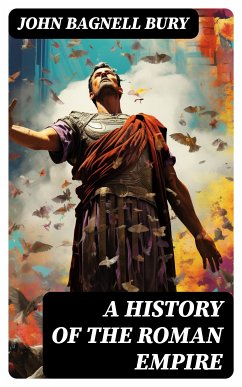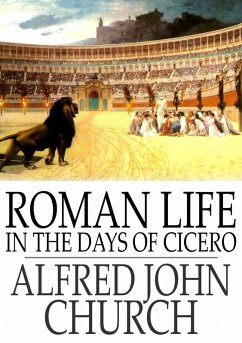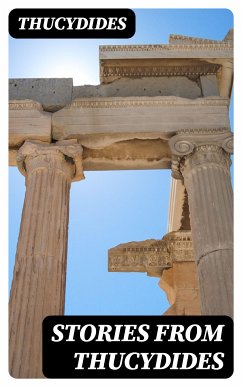
The Roman History of Ammianus Marcellinus (eBook, ePUB)
During the Reigns of the Emperors Constantius, Julian, Jovianus, Valentinian, and Valens
Übersetzer: Yonge, Charles Duke

PAYBACK Punkte
0 °P sammeln!
The Roman History of Ammianus Marcellinus is a monumental historical narrative that intricately weaves the late Roman Empire's political, military, and social landscapes into a compelling tapestry. Written in elegant and sophisticated Latin prose, Ammianus transcends mere chronicle to provide penetrating insights into the complexities of imperial governance and the enduring legacies of Hellenistic history. His unique literary style employs vivid descriptions, dramatic episodes, and philosophical reflections, capturing not only events but the psychological dimensions of those involved. This wor...
The Roman History of Ammianus Marcellinus is a monumental historical narrative that intricately weaves the late Roman Empire's political, military, and social landscapes into a compelling tapestry. Written in elegant and sophisticated Latin prose, Ammianus transcends mere chronicle to provide penetrating insights into the complexities of imperial governance and the enduring legacies of Hellenistic history. His unique literary style employs vivid descriptions, dramatic episodes, and philosophical reflections, capturing not only events but the psychological dimensions of those involved. This work covers the era from the reign of Nerva (96 AD) to the death of Valens at the Battle of Adrianople in 378 AD, making it one of the few extant primary sources from this turbulent period. Ammianus Marcellinus was a Roman soldier and historian, born around 330 AD in Antioch. Having served under the emperor Constantius II, he witnessed significant military campaigns and court intrigues, which undoubtedly shaped his desire to document his times comprehensively. His background enriched his narrative with firsthand experience and a nuanced understanding of the sociopolitical dynamics at play, allowing him to critique the decline of Roman morals and military efficacy while echoing the sentiments of a waning empire. For readers interested in classical antiquity, The Roman History of Ammianus Marcellinus is an essential text that offers an unparalleled window into the last days of imperial Rome. This work is not only a historical account but also a reflection on the human condition in the face of socio-political upheaval, making it a timeless read for historians, scholars, and anyone intrigued by the roots of Western civilization.
Dieser Download kann aus rechtlichen Gründen nur mit Rechnungsadresse in A, B, BG, CY, CZ, D, DK, EW, E, FIN, F, GR, H, IRL, I, LT, L, LR, M, NL, PL, P, R, S, SLO, SK ausgeliefert werden.













